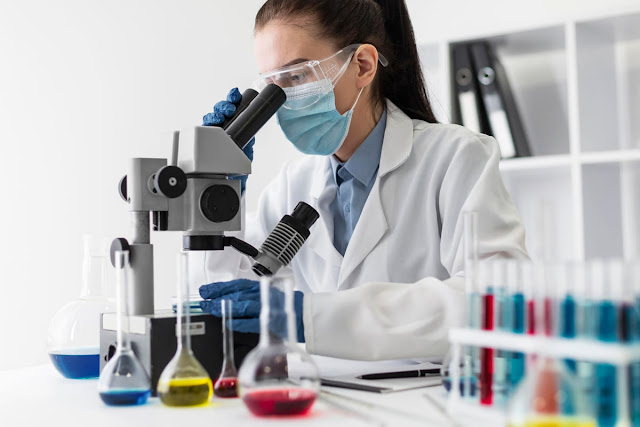Everything You Need to Know about the blood test
Thinking
about getting your blood tested? Read on to find out everything you need to
know about the Complete Blood Count Lab Test at Chughtai lab Lahore, from
preparation to recovery!
This can run
this test on both adults and children of all ages, and it helps to identify any
issues with your red blood cells, white blood cells, platelets, or hemoglobin.
The complete blood count lab test helps doctors determine if there's an
infection or if you're anemic, and they can even use it to monitor certain
cancers over time.
A guide
to understanding blood cells
The complete
blood count test through Chughtai lab
Lahore is a
simple and effective way of understanding what's going on inside your body.
Your red
blood cells transport oxygen from your lungs to your tissues; white blood cells
are essential for fighting infections, and platelets help clot. This test
analyzes how many of each type of cell you have and whether or not there are
any abnormalities present in those cells.
The red
blood cell
Red blood
cells, or erythrocytes, are one of your body's smallest and most common cells.
They give your blood its distinctive red color and are responsible for carrying
oxygen throughout your body.
Hemoglobin
is a protein in red blood cells that carries oxygen from your lungs throughout
your body through a series of thin tubes called capillaries.
Hemoglobin,
hematocrit, and mean corpuscular volume
Hemoglobin
is a protein that contains iron and transports oxygen from our lungs to other
parts of our bodies. It gives blood its red color. Hemoglobin normally makes up
80 percent of red blood cells by volume.
Hemoglobin
is made in your bone marrow, then released into your bloodstream as your body
needs it. When you have low hemoglobin, there isn't enough hemoglobin in your
blood; there is too much hemoglobin in your blood when you have high
hemoglobin.
Erythrocytes
Indirect Coombs test
Erythrocytes
Indirect Coombs test measures whether antibodies are present in your blood.
Antibodies can cause problems for a baby if you become pregnant. Suppose your
partner has Rhesus disease, or you're Rh-negative, or your partner is
Rh-positive. A doctor may recommend Chughtai lab an indirect Coombs test of
erythrocytes as part of routine prenatal care.
Leukocytes
Direct Coombs test
A positive
direct Coombs test indicates autoimmune hemolytic anemia (AIHA), a condition
where your immune system attacks and destroys your red blood cells.
If you have
a positive direct Coombs test, you may need to undergo additional testing for
AIHA. If so, additional tests include erythrocyte sedimentation rate (ESR) and
peripheral blood smear.
Informative Article: 8 Quick and Healthy Lunch Ideas for Busy Moms


.jpg)









0 Comments